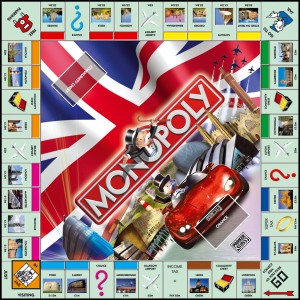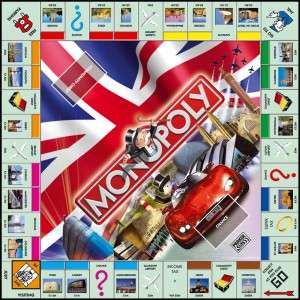Monopoly update
October 21st, 2012 | International News
 No, of course I am not talking about the famous board game made by Hasbro, but actually about the bodies that control the sale of alcohol in Canada and most of Scandinavia. Anyone who has ever tried to work with a monopoly will tell you that it can be a very frustrating experience, and whilst we all recognise that control is required, some might view these organisations as perhaps a little old fashioned or maybe even draconian (especially in a 21st century free market environment).
No, of course I am not talking about the famous board game made by Hasbro, but actually about the bodies that control the sale of alcohol in Canada and most of Scandinavia. Anyone who has ever tried to work with a monopoly will tell you that it can be a very frustrating experience, and whilst we all recognise that control is required, some might view these organisations as perhaps a little old fashioned or maybe even draconian (especially in a 21st century free market environment).
Monopolies work on a system of tenders – if they are looking for a specific wine, then they will invite producers (perhaps from a specific reason such as Rias Baixas), to submit their samples. Quite fair you might think, and of course this part is. I have always been an advocate of selling on the basis of quality and value for money, and so in this sense my belief is always “may the best man (or wine) win”.
The monopolies always specify the range of ex-cellar price that they are looking for, and again, no problem, but then they also add a tasting note of what they believe the wine should taste like. Being a former buyer myself I understand completely the necessity to find a ‘typical’ wine – typical of its denomination that is. However, in these circumstances you have to make sure that your description is accurate and reflects the differing styles that may exist within a specific region. For example, in tenders for albariño I have seen expressions such as ‘generous’ and ‘full-bodied’ being used, which, to be honest, are not descriptions that I would use myself.
I guess the problem is that if you become too specific about the wine style, type of closure or perhaps even the alcohol content that you are looking for, then it is possible that you will automatically exclude some very good wines from your tasting before you have even pulled a cork! I was always trained to keep a completely open mind, and to expect to taste 20, 50 or even 100 wines before I found the one that I was looking for…… tasting, tasting, tasting – there are no shortcuts.
Having said all that my biggest frustration with monopolies was that of continuity. Monopolies might hold three of four tastings a year from within one specific denomination. For a bodega this means quite a number of samples not to mention a huge UPS bill. The problem was that even when successful in one particular tasting, this would not be any guarantee of a long-term listing – quite the opposite in fact. Speaking from our own experience, our wine was selected, listed and sold in a very short space of time (picking up some very favourable press reviews along the way), but despite this apparent success, the wine was never re-ordered. They simply started the whole process again from the very beginning requesting yet more samples!
The good news is that in Sweden at least, they are changing the system. I’m not sure of the exact details, but I am given to understand that they are now looking for more ‘permanent’ listings. Not only is this good news for their would-be suppliers, but also for the Swedish consumer. Imagine walking into one of their State run shops, finding a wine that you really like, and then never being able to buy it again. Far from the perfect system (bolaget)!
 No, of course I am not talking about the famous board game made by Hasbro, but actually about the bodies that control the sale of alcohol in Canada and most of Scandinavia. Anyone who has ever tried to work with a monopoly will tell you that it can be a very frustrating experience, and whilst we all recognise that control is required, some might view these organisations as perhaps a little old fashioned or maybe even draconian (especially in a 21st century free market environment).
No, of course I am not talking about the famous board game made by Hasbro, but actually about the bodies that control the sale of alcohol in Canada and most of Scandinavia. Anyone who has ever tried to work with a monopoly will tell you that it can be a very frustrating experience, and whilst we all recognise that control is required, some might view these organisations as perhaps a little old fashioned or maybe even draconian (especially in a 21st century free market environment).
Monopolies work on a system of tenders – if they are looking for a specific wine, then they will invite producers (perhaps from a specific reason such as Rias Baixas), to submit their samples. Quite fair you might think, and of course this part is. I have always been an advocate of selling on the basis of quality and value for money, and so in this sense my belief is always “may the best man (or wine) win”.
The monopolies always specify the range of ex-cellar price that they are looking for, and again, no problem, but then they also add a tasting note of what they believe the wine should taste like. Being a former buyer myself I understand completely the necessity to find a ‘typical’ wine – typical of its denomination that is. However, in these circumstances you have to make sure that your description is accurate and reflects the differing styles that may exist within a specific region. For example, in tenders for albariño I have seen expressions such as ‘generous’ and ‘full-bodied’ being used, which, to be honest, are not descriptions that I would use myself.
I guess the problem is that if you become too specific about the wine style, type of closure or perhaps even the alcohol content that you are looking for, then it is possible that you will automatically exclude some very good wines from your tasting before you have even pulled a cork! I was always trained to keep a completely open mind, and to expect to taste 20, 50 or even 100 wines before I found the one that I was looking for…… tasting, tasting, tasting – there are no shortcuts.
Having said all that my biggest frustration with monopolies was that of continuity. Monopolies might hold three of four tastings a year from within one specific denomination. For a bodega this means quite a number of samples not to mention a huge UPS bill. The problem was that even when successful in one particular tasting, this would not be any guarantee of a long-term listing – quite the opposite in fact. Speaking from our own experience, our wine was selected, listed and sold in a very short space of time (picking up some very favourable press reviews along the way), but despite this apparent success, the wine was never re-ordered. They simply started the whole process again from the very beginning requesting yet more samples!
The good news is that in Sweden at least, they are changing the system. I’m not sure of the exact details, but I am given to understand that they are now looking for more ‘permanent’ listings. Not only is this good news for their would-be suppliers, but also for the Swedish consumer. Imagine walking into one of their State run shops, finding a wine that you really like, and then never being able to buy it again. Far from the perfect system (bolaget)!


